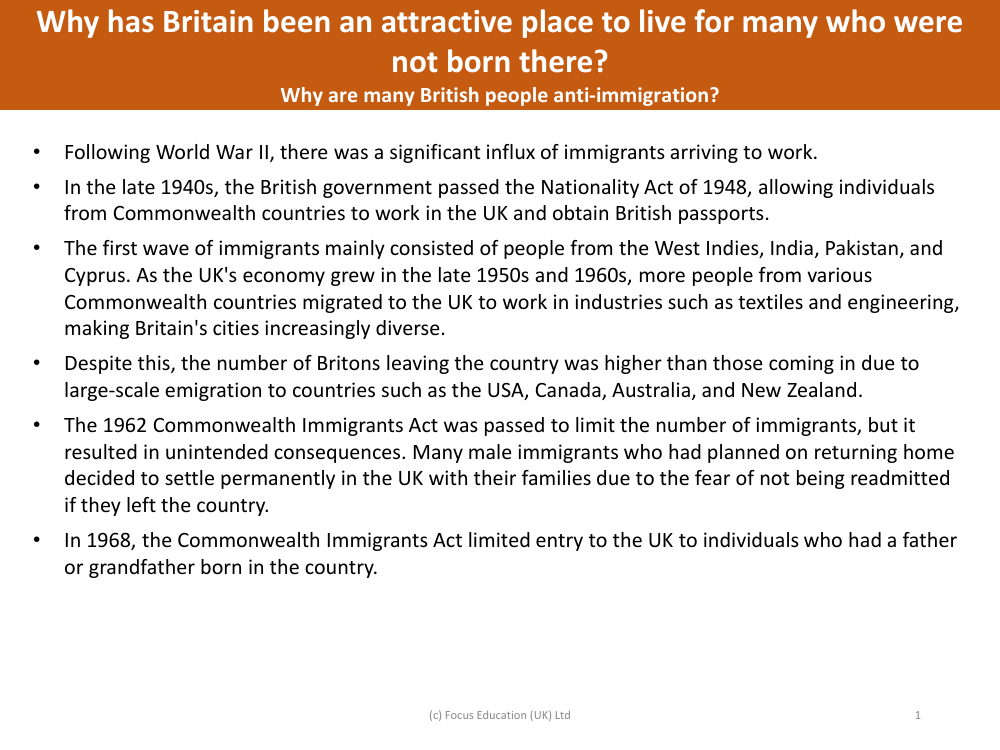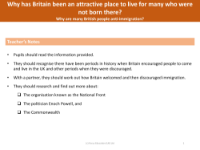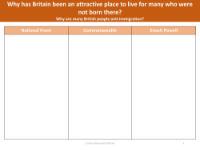Why are many British people anti-immigration? - Info Pack - Year 6

Geography Resource Description
Britain's history with immigration is complex and multifaceted. After World War II, the UK experienced a significant increase in the number of immigrants, particularly from Commonwealth countries. This was largely due to the British Nationality Act of 1948, which allowed citizens from these countries to work in the UK and obtain British passports. Early immigrants were mostly from the West Indies, India, Pakistan, and Cyprus, contributing to the economic boom in industries like textiles and engineering. However, despite the growing diversity in British cities, the number of British citizens emigrating to countries like the USA and Australia was actually higher than the number of incoming immigrants. Over time, changes in legislation, such as the Commonwealth Immigrants Act of 1962 and the subsequent act in 1968, were introduced to restrict immigration, leading to permanent settlement decisions by many who had initially planned to return to their home countries.
The arrival of immigrants in the UK has not always been met with a warm welcome. For example, Asian refugees expelled from East Africa in the late 1960s faced considerable hostility and protests, with groups like the National Front campaigning against non-white immigration. The political climate was further affected by speeches from Enoch Powell in 1968 and Margaret Thatcher in 1978, which criticised immigration levels and contributed to polarisation in public opinion. These events underscore the ongoing struggle for acceptance and inclusion that many immigrants have faced in Britain. While the economic contributions of immigrants were generally recognised by the government, the working population often harboured concerns about job competition and wage impacts, leading to social tensions and, in some cases, violence against immigrant communities.



